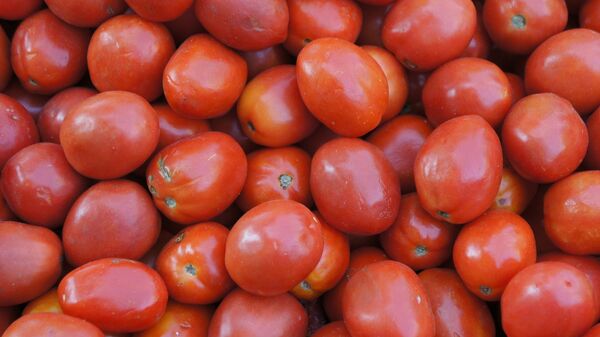BOCHAROV RUCHEY (Russia), (Sputnik) — In November, just after Russia started lifting its food embargo on Turkey, the Russian Agriculture Ministry said some restrictions would stay in place in order to develop domestic greenhouses which needed time to become profitable and competitive before being faced with imports.
"We are now accelerating this program and maybe can manage in three years, but usually it takes five years. This means that some kind of restrictions can persist for this period [of five years], but they will be more flexible than just an embargo entirely banning the import of goods," Dvorkovich told reporters.
Earlier in the day, Russian President Vladimir Putin said that restrictions on Turkish tomatoes would remain due to a long investment cycle involving loans taken out by Russian producers as well as the construction of greenhouses.
Russia's food embargo was introduced on January 1, 2016 in response to the 2015 downing of a Russian aircraft by Turkey over Syria. In October 2016, the Russian embargo on Turkish stone fruits and citrus fruits was lifted. In March, the government exempted fresh and refrigerated onion and shallot, fresh and refrigerated broccoli and cauliflower along with several other products from the ban. The import of tomatoes, cucumbers, apples, pears, grapes, strawberries and most poultry products is still banned.


